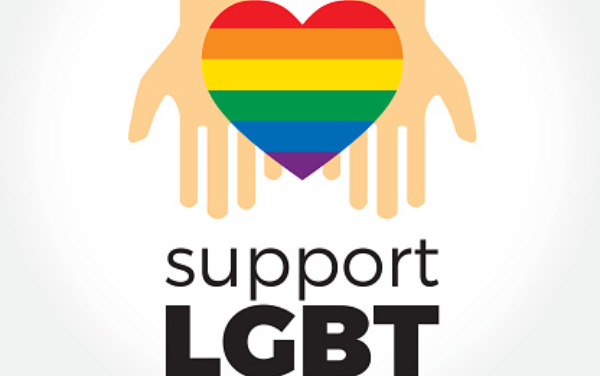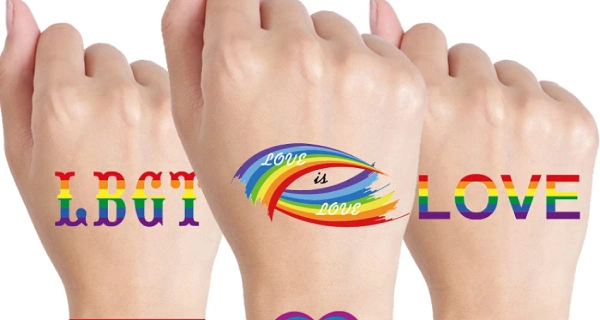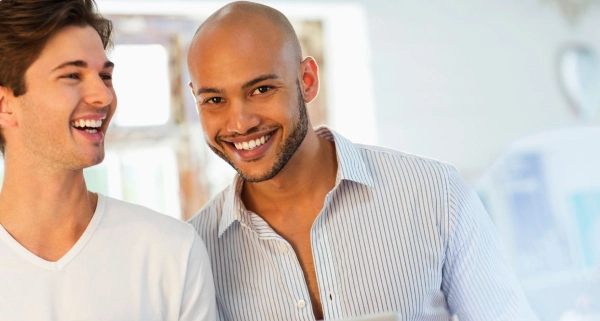
Gay first time is an important milestone for many people, and it can be daunting to think about how to go about it. It is important to take the time to think through safe and pleasurable sexual experiences, as well as what activities you may want or not want, before your first sexual experience with someone of the same gender.
There are a few things that you should consider: Consent, Safer Sex Practices, and Negotiate Your Boundaries.
Consent is required for any kind of sexual activity. This means making sure that your partner has given their full and enthusiastic consent prior to engaging in any kind of activity, regardless of the context. Make sure there is verbal communication and respect for what each person wants from the experience.
Safer sex practices are also incredibly important for protecting yourself against STIs (sexually transmitted infections) or HIV. Talk about what barriers you both feel comfortable using prior to engaging in any kind of sex act – this could include condoms or dental dams if relevant – so that everyone involved knows how they will be protected during the experience.
Negotiating boundaries is another key step in making sure that both parties involved have a pleasurable experience. It’s important to talk openly and honestly about what activities each person enjoys or doesn't feel comfortable engaging in before anything actually happens – respect your partner’s feelings on these issues no matter what!
Going into a situation feeling informed, secure in knowing your boundaries, and having open communication can make all the difference when it comes to gay first time experiences!
What ‘Gay First Time’ Means
The term "gay first time" typically refers to a person's first sexual experience with someone of the same gender. It can be an exciting and nerve-wracking experience, especially if someone is exploring their sexuality for the first time. It's important to note that everyone's first time is different, and there is no right or wrong way to experience it.
For some, their first time may involve exploring their feelings and attractions with a close friend or partner. Others may choose to explore their sexuality through a hookup or casual encounter. No matter how someone chooses to explore their sexuality, it's important to prioritize safety and consent.
It's also important to remember that sexuality is fluid and can change over time. Someone's first time with someone of the same gender doesn't necessarily mean they identify as gay or lesbian. It's up to each individual to explore their sexuality and figure out what feels right for them.
The Common Emotions Associated With Gay First Time Experiences
First time experiences can be nerve-wracking, especially when it comes to sexual encounters. For many individuals in the LGBTQ+ community, their first time with a same-sex partner can bring up a range of emotions. It's important to acknowledge and validate these feelings in order to have a positive and healthy experience.
One common emotion is excitement - the anticipation of exploring new sensations and experiences with someone you are attracted to can be thrilling. On the other hand, nervousness and anxiety are also common emotions. There may be fear of the unknown, concerns about being judged or rejected, or worry about not knowing what to do.
It's important to communicate with your partner and establish boundaries and expectations beforehand. This can help alleviate some of the nervousness and uncertainty. It's also important to remember that everyone's first time is different and there is no right or wrong way to experience it.
Another common emotion is vulnerability. For many LGBTQ+ individuals, their first time with a same-sex partner can be a particularly vulnerable experience. They may have faced discrimination or rejection in the past, and opening up to someone new can be challenging.
It's important to prioritize consent and respect in any sexual encounter. This means checking in with your partner and making sure they are comfortable with each step of the experience. It's also important to remember that vulnerability can be a strength, and that opening up to someone can be a powerful and intimate experience.
Overall, discussing and acknowledging the emotions associated with gay first time experiences can help individuals feel more prepared and confident. With communication, respect, and a willingness to be vulnerable, a first time experience can be a positive and empowering experience.
Exploring the Social and Cultural Aspects of Gay First Times
Exploring the social and cultural aspects of gay first times can be a complex and sensitive topic. It's important to recognize that each individual's experience will be unique and personal. However, there are some common themes that may be helpful to consider.
One aspect to consider is the societal stigma and discrimination that can surround being gay. This can create feelings of shame, fear, and confusion for those who are exploring their sexuality for the first time. It's important to create a safe and supportive environment for individuals to explore their feelings and desires without judgment or shame.
Another aspect to consider is the impact of media and cultural representations of gay relationships and sexuality. Many people's first exposure to gay relationships may come from television, movies, or other media sources. It's important to recognize that these representations may not always be accurate or reflective of real-life experiences.
It's also important to recognize that gay first times can vary depending on a person's age, background, and cultural context. Some individuals may have grown up in a supportive and accepting environment, while others may have faced significant challenges and discrimination.
Overall, exploring the social and cultural aspects of gay first times requires sensitivity, empathy, and a willingness to listen and learn. By creating a safe and supportive environment, individuals can explore their sexuality and identity in a way that feels authentic and true to themselves.







